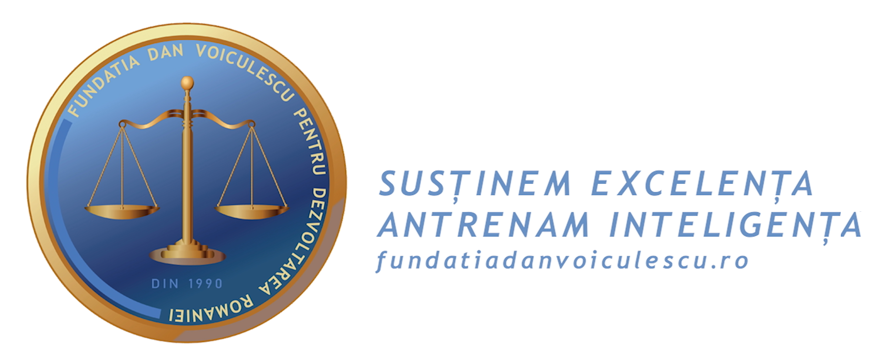Giftedness is a special human manifestation, with many facets, having as a common element exceptionality and being achieved through the happy combination of special intellectual abilities and skills with certain personality traits (and under the conditions of a favourable socio-family-cultural environment). Gifted children are not a homogeneous population group. However, gifted children are a special group, differentiated by personality characteristics, learning style, way of interacting with peers, etc. They should be considered as people with special needs, precisely because they are special.
Gifted pupils are those with above-average intellectual capacity (psychometrically, over 130), cognitive differences in both quantity and quality, greater maturity (perception and visual memory), development of metacognitive capacity at an early age (about 6 years) and intuition in problem solving, creative talent and intrinsic motivation for learning, precocity and talent.
The most comprehensive definition of giftedness was presented in the Maryland Report, proposed by the Commission on Education of the U.S. Department of Education (to the Congress on Education, 1971). According to it, gifted and talented children are those children who are capable of high performance, demonstrating potential acquisitions and/or abilities such as: general intellectual ability, specific academic aptitude, creative or productive thinking, leadership ability, visual and performing arts, psychomotor ability.
According to the latest definitions, gifted individuals are those who show spontaneity and/or high achievement in any of the following areas:
- general intellectual ability;
- academic talent;
- creative thinking skills;
- leadership skills;
- visual and performing arts;
- psychomotor skills.
We're probably tempted to look at these things from an idealistic perspective, but it's already known that most gifted children tend to isolate themselves from others. They are absorbed in their preferred pursuits and often specialise early, thus outperforming their peers in some respects. The difficulty with which they find a common language of natural communication with their peers usually leads them to isolate themselves. This represents a difficulty for their natural development, their social, physical or intellectual growth. They are particularly frustrated, and there are many cases of gifted children with a tendency to drop out of school or gifted adults who have created a new personal niche for themselves, possibly creating new technologies or new fields of interest, as a way of resolving their own frustrations and as a reaction to social hostility.
Most specialists rate gifted children as being precocious, with an exceptional intelligence that influences all their behaviour. Behaviourally, these children do not always integrate well into the group, are more preoccupied with their own ideas, become less attentive to some lessons that do not meet their standards, deviate from school rules, make comments on the rules imposed, giving the impression of being naughty. A report by the National Center for Early Childhood Programs has pointed out that success in school may not be predictable by a child's facts or early reading ability, but by emotional and social inclinations: self-confidence and interest.
Defining increased giftedness
Gifted or supernormal (or supernormal, see China) is the normal of human potential achieved by a small number of people. This normal includes intellectual, artistic, ethical, communicative or creative qualities that are far beyond the ordinary.
- Gifted, adj. (about children) With extraordinary intellectual qualities - (after fr. surdoue) (DEX)
- Today there is no clear conclusion on an exact explanation or definition of the concept of intelligence
- Modern academic theories recognise that IQ tests are not the true measure of intelligence and that they have various cultural or language interpretations or connotations.
- Ongoing research in the study of intelligence suggests that there are multiple forms of intelligence - (at least) 8 multiple intelligences, according to Dr Howard Gardner - and not just the form of academic intelligence, which is the main aspect measured in an IQ test. Current psychological education recognizes that there are many different types of giftedness and equally many different factors for recognizing it, which requires an inclusive, multi-faceted approach to identifying a gifted person.
- A person is gifted if they have at some point chosen this path. He shapes himself and his personal abilities according to these choices. Potentially all people can be gifted, but most prefer to under-utilise themselves and live with no or little personal development. It is this characteristic (task commitment) that determines the focus of personal effort in a clear direction. Task commitment is the trigger for skill formation and acceptance of creativity separately. A self-motivated person for personal development is likely to increase the value of his own skills. To stimulate this in gifted education, grouping children according to abilities is used.
- The planetary population has an average annual increase in intelligence of 0.2% IQ points, while the gifted population has a 4% IQ point increase - this difference makes the difference between those who are towed and those who tow. For these reasons gifted education is a mass education oriented towards methodologies of emancipation of the human being and liberation of one's own potentials, and the teaching methodologies in gifted education were obtained by studying the characteristics of the gifted population and then offered to all. People find the resources to solve big problems when they have a horizon of their own evolution. It attracts attention and channels efforts. It seems that we cannot live without horizons but can only survive. In conclusion we have to give people horizons. Gifted education teaches people to identify them.
- Currently Giftedness is defined using factors such as IQ (intelligence quotient), SQ (spirituality quotient), EQ (emotional sensitivity quotient) and other indicators.
However, using IQ to indicate giftedness the following Gauss curve indicates:
- 85 – 99 Lower normal / Normal inferior
- 100 – 114 Upper normal / Normal superior
- 115 – 129 Bright / Strălucitor
- 130 – 144 Gifted / Talentat
- 145 – 159 Highly gifted / Talent superior
- 160 – 180 Profoundly gifted / Profund talentat
- Over 180 Genius / Geniu

